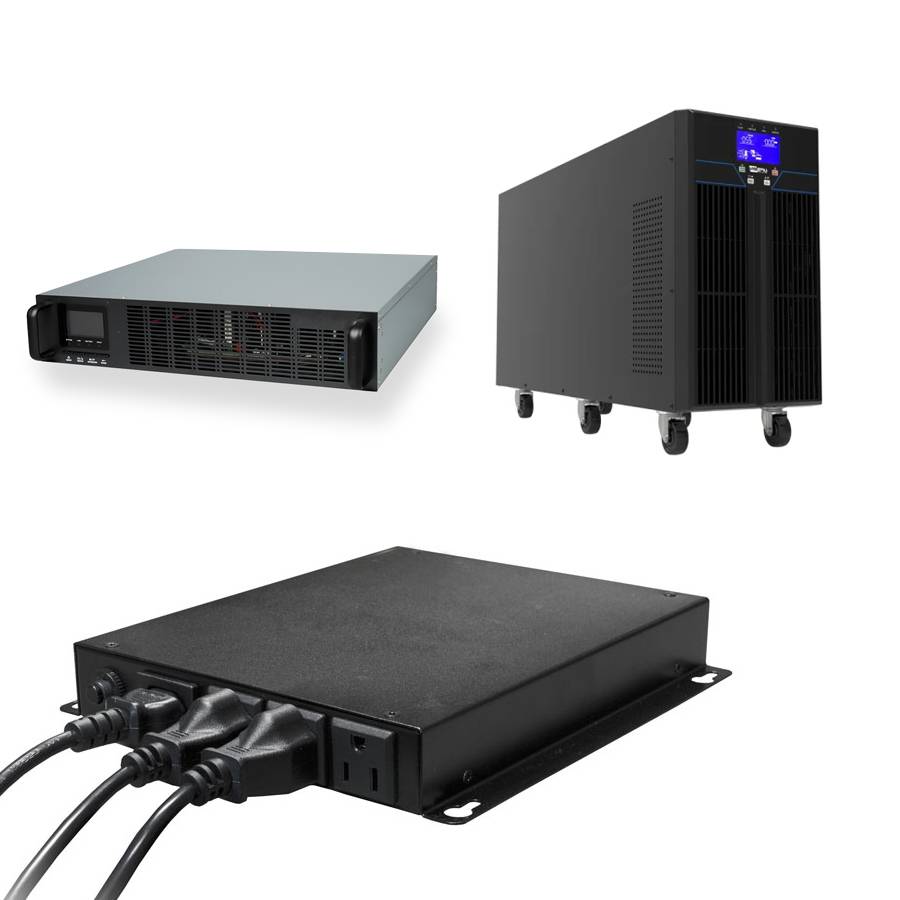- Forklift Lithium Battery
-
48V
- 48V 210Ah
- 48V 300Ah
- 48V 420Ah (949 x 349 x 569 mm)
- 48V 420Ah (950 x 421 x 450 mm)
- 48V 456Ah
- 48V 460Ah (830 x 630 x 590 mm)
- 48V 460Ah (950 x 421 x 450 mm)
- 48V 460Ah (800 x 630 x 600 mm)
- 48V 460Ah (820 x 660 x 470 mm)
- 48V 500Ah
- 48V 560Ah (810 x 630 x 600 mm)
- 48V 560Ah (950 x 592 x 450 mm)
- 48V 600Ah
- 48V 630Ah
-
48V
- Lithium Golf Cart Battery
- 12V Lithium Battery
12V 150Ah Lithium RV Battery
Bluetooth App | BCI Group 31
LiFePO4 Lithium
Discharge Temperature -20°C ~ 65°C
Fast Charger 14.6V 50A
Solar MPPT Charging - 24V Lithium Battery
- 36V Lithium Battery
- 48V Lithium Battery
-
48V LiFePO4 Battery
- 48V 50Ah
- 48V 50Ah (for Golf Carts)
- 48V 60Ah (8D)
- 48V 100Ah (8D)
- 48V 100Ah
- 48V 100Ah (Discharge 100A for Golf Carts)
- 48V 100Ah (Discharge 150A for Golf Carts)
- 48V 100Ah (Discharge 200A for Golf Carts)
- 48V 150Ah (for Golf Carts)
- 48V 160Ah (Discharge 100A for Golf Carts)
- 48V 160Ah (Discharge 160A for Golf Carts)
-
48V LiFePO4 Battery
- 60V Lithium Battery
-
60V LiFePO4 Battery
- 60V 20Ah
- 60V 30Ah
- 60V 50Ah
- 60V 50Ah (Small Size / Side Terminal)
- 60V 100Ah (for Electric Motocycle, Electric Scooter, LSV, AGV)
- 60V 100Ah (for Forklift, AGV, Electric Scooter, Sweeper)
- 60V 150Ah (E-Motocycle / E-Scooter / E-Tricycle / Tour LSV)
- 60V 200Ah (for Forklift, AGV, Electric Scooter, Sweeper)
-
60V LiFePO4 Battery
- 72V~96V Lithium Battery
- Rack-mounted Lithium Battery
- E-Bike Battery
- All-in-One Home-ESS
- Wall-mount Battery ESS
-
Home-ESS Lithium Battery PowerWall
- 24V 100Ah 2.4kWh PW24100-S PowerWall
- 48V 50Ah 2.4kWh PW4850-S PowerWall
- 48V 50Ah 2.56kWh PW5150-S PowerWall
- 48V 100Ah 5.12kWh PW51100-F PowerWall (IP65)
- 48V 100Ah 5.12kWh PW51100-S PowerWall
- 48V 100Ah 5.12kWh PW51100-H PowerWall
- 48V 200Ah 10kWh PW51200-H PowerWall
- 48V 300Ah 15kWh PW51300-H PowerWall
PowerWall 51.2V 100Ah LiFePO4 Lithium Battery
Highly popular in Asia and Eastern Europe.
CE Certification | Home-ESS -
Home-ESS Lithium Battery PowerWall
- Portable Power Stations
We accept OEM, ODM and SKD orders
UPS Lithium Batteries OEM/ODM Manufacturer
Redway Power
UPS Lithium Batteries, One-Stop Solution
Redway Power stands out as a leading global manufacturer of Lithium-ion UPS Batteries, specially designed for Uninterruptible Power Supply systems. These batteries deliver superior energy density, a prolonged lifespan, and rapid charging capabilities. Redway's Lithium-ion UPS Batteries are maintenance-free and temperature-tolerant, offering a compact design for versatile installation.
With these batteries, Redway ensures reliable backup power, making them ideal for diverse applications. The commitment to precision manufacturing processes underscores their dedication to providing top-notch Lithium-ion UPS Batteries that prioritize efficiency, durability, and seamless integration into UPS systems, meeting the demands of today's power backup requirements.
UPS Lithium Batteries Wholesale
Looking for wholesale UPS lithium batteries? UPS lithium batteries are specifically designed for uninterruptible power supply (UPS) systems, providing backup power in the event of a power outage. These batteries ensure continuous power supply to critical devices or systems, such as servers, data centers, and medical equipment. Explore a wide range of wholesale options like Redway Power, and stock up on UPS lithium batteries to ensure uninterrupted power backup for your business or organization.
What is the wholesale price of lithium battery?
You can click contact us or phone call us. We will give you multiple options of price.
Is Redway Power a trading company or factory?
Redway Power is a company with its own factory, integrating research, development, production, and sales.
How about the quality of Redway's LiFePo4 Battery product?
Redway Power boasts over 12 years of experience in LiFePO4 battery production and is an authorized supplier for CATL and BYD.
Can you do an OEM/ODM project?
Yes, we have engineers available to assist in designing and developing any related products.
What’s your MOQ?
MOQ varies according to battery voltage and capacity.
What payment terms can we accept?
We accept TT/Paypal/West Union, etc.
UPS Lithium Batteries Knowledge
UPS lithium batteries are a game-changer in the power industry, offering advantages over traditional lead-acid batteries. With higher energy density, longer lifespan, and faster recharge times, UPS lithium batteries provide reliable backup power for critical systems. They also have lower maintenance requirements and a lower total cost of ownership. Explore comprehensive guides and articles to gain insights into UPS lithium batteries and their applications in various industries.
Why upgrade to lithium-ion UPS battery?
Upgrading to a lithium-ion UPS battery brings significant benefits. Enjoy a longer runtime for extended power backup during outages. The lightweight and compact nature of lithium-ion batteries save valuable space in UPS systems. With a longer lifespan, lithium-ion batteries offer a cost-effective solution over time. Experience faster recharging capabilities and reduced maintenance compared to lead-acid batteries. Upgrade to a lithium-ion UPS battery for reliable power backup and enhanced efficiency.
- Longer runtime for extended power backup during outages
- Lightweight and compact, saving space in UPS systems
- Longer lifespan, providing a cost-effective solution over time
- Faster recharging capabilities
- Reduced maintenance compared to lead-acid batteries
How to choose a lithium-ion UPS battery?
Choosing a lithium-ion UPS battery requires careful consideration. Assess your immediate runtime needs and ensure the battery can support critical functions during outages. It is crucial to consider the total lifespan of the battery backup system, aiming for around a decade (10 years) of consistent performance. Evaluate factors such as capacity, efficiency, charging capabilities, and compatibility with your UPS system. Make an informed decision to ensure reliable power backup and long-term efficiency.
- Assess immediate runtime needs
- Consider the total lifespan of the battery backup system (aim for around 10 years of consistent performance)
- Evaluate capacity, efficiency, charging capabilities, and compatibility with the UPS system
How to calculate UPS battery needs for 20 kVA?
To calculate UPS battery needs for a 20 kVA system, consider factors such as UPS efficiency, load power factor, and desired backup time. The minimum battery rating requirement for a 20 kVA Online UPS to provide 30 minutes of backup is 42 Ah. Calculate the specific battery rating based on the UPS load, efficiency, and desired backup time for optimal performance.
- Consider UPS efficiency, load power factor, and desired backup time
- Minimum battery rating requirement for a 20 kVA Online UPS to provide 30 minutes of backup is 42 Ah
- Calculate specific battery rating based on UPS load, efficiency, and desired backup time
What’s the difference between UPS lithium and lead-acid?
The difference between UPS lithium and lead-acid batteries is significant. Lithium-ion UPS systems can provide a longer runtime compared to lead-acid UPS systems. This is due to their weight and size advantages. Moreover, lithium-ion batteries have a longer lifespan, which can offset their initial higher cost over time. They can also operate at higher temperatures, making them suitable for various environments. Upgrade to a lithium-ion UPS battery for extended runtime, durability, and enhanced performance.
- Lithium-ion UPS systems provide a longer runtime compared to lead-acid UPS systems
- Lithium-ion batteries have weight and size advantages
- Longer lifespan of lithium-ion batteries offsets their initial higher cost over time
- Lithium-ion batteries can operate at higher temperatures
Can UPS battery be replaced with lithium-ion batteries, and what to consider?
Yes, you can safely replace UPS batteries with lithium-ion batteries. Lithium-ion batteries offer a longer lifespan and lower maintenance requirements. They can be used in uninterruptible power systems (UPS) and provide features like battery monitoring systems. When replacing UPS batteries with lithium-ion, ensure compatibility with the UPS system and consider factors such as battery capacity, voltage requirements, and proper battery management systems (BMS) for optimal performance and safety.”
- Yes, UPS batteries can be safely replaced with lithium-ion batteries
- Lithium-ion batteries offer a longer lifespan and lower maintenance requirements
- Consider compatibility with the UPS system and factors like battery capacity and voltage requirements
- Proper battery management systems (BMS) ensure optimal performance and safety
Why is lithium-ion a good UPS battery choice?
Lithium-ion UPS systems are a good choice for several reasons. They provide a longer runtime compared to lead-acid UPS systems, thanks to their weight and size advantages. With a longer lifespan, lithium-ion batteries reduce the need for frequent replacements, offsetting their initial higher cost over time. Additionally, they are smaller, lighter, and more flexible, making installation and relocation easier. Upgrade to a lithium-ion UPS battery for improved performance, efficiency, and reliability.”
- Lithium-ion UPS systems offer a longer runtime compared to lead-acid UPS systems
- Longer lifespan reduces the need for frequent battery replacements
- Smaller, lighter, and more flexible for easier installation and relocation
- Improved performance, efficiency, and reliability
Are lithium batteries safe for use in UPS systems?
Yes, lithium batteries are generally safe for use in UPS systems when handled properly. They have built-in safety features to prevent overcharging, overheating, and other potential hazards. However, it is important to follow manufacturer guidelines, handle the batteries with care, and install them according to safety protocols to ensure safe operation and minimize risks.

Here are the main points to understand:
- Built-in Safety Features: Lithium batteries have built-in safety features, such as protection circuits, to prevent overcharging, overheating, and other potential hazards.
- Manufacturer Guidelines: It is important to follow manufacturer guidelines for handling and installing lithium batteries in UPS systems.
- Safety Protocols: Following safety protocols and handling the batteries with care ensures safe operation and minimizes risks.
Lithium batteries are generally safe for use in UPS systems when handled properly. They have built-in safety features and should be handled and installed according to manufacturer guidelines and safety protocols to ensure safe operation and minimize risks.
What are the advantages of using lithium batteries in UPS systems?
When installing lithium batteries in UPS systems, several precautions should be taken to ensure safety and optimal performance. These precautions include proper handling and storage of the batteries, following manufacturer guidelines for installation, ensuring proper ventilation and temperature control, and implementing appropriate safety measures for battery maintenance and monitoring.
Here are the main points to understand:
- Proper Handling and Storage: Lithium batteries should be handled and stored in accordance with manufacturer guidelines to prevent damage and ensure safe installation.
- Manufacturer Guidelines: It is crucial to follow the manufacturer’s instructions for installing lithium batteries in UPS systems to ensure proper connection and compatibility.
- Ventilation and Temperature Control: Adequate ventilation and temperature control are essential to prevent overheating and ensure the longevity of the batteries.
- Safety Measures: Implementing appropriate safety measures, such as regular battery maintenance and monitoring, helps ensure the safe operation of the UPS system.
While there is no specific featured snippet available, it is important to take precautions when installing lithium batteries in UPS systems. Proper handling, following manufacturer guidelines, ensuring ventilation and temperature control, and implementing safety measures are crucial for the safe and efficient operation of lithium batteries in UPS systems.
What precautions should be taken when installing lithium batteries in UPS systems?
When installing lithium batteries in UPS systems, several precautions should be taken to ensure safety and optimal performance. These precautions include proper handling and storage of the batteries, following manufacturer guidelines for installation, ensuring proper ventilation and temperature control, and implementing appropriate safety measures for battery maintenance and monitoring.
Here are the main points to understand:
- Proper Handling and Storage: Lithium batteries should be handled and stored in accordance with manufacturer guidelines to prevent damage and ensure safe installation.
- Manufacturer Guidelines: It is crucial to follow the manufacturer’s instructions for installing lithium batteries in UPS systems to ensure proper connection and compatibility.
- Ventilation and Temperature Control: Adequate ventilation and temperature control are essential to prevent overheating and ensure the longevity of the batteries.
- Safety Measures: Implementing appropriate safety measures, such as regular battery maintenance and monitoring, helps ensure the safe operation of the UPS system.
While there is no specific featured snippet available, it is important to take precautions when installing lithium batteries in UPS systems. Proper handling, following manufacturer guidelines, ensuring ventilation and temperature control, and implementing safety measures are crucial for the safe and efficient operation of lithium batteries in UPS systems.
Can lithium batteries be retrofitted into existing UPS systems?
When looking to upgrade UPS systems with lithium batteries, consider compatibility, space, and safety. Check voltage, capacity, and ensure a suitable battery management system. Lithium batteries offer longer lifespan, faster charging, and reduced maintenance. Consult professionals for safe installation. Contact Redway for further insights on retrofitting lithium-ion batteries into existing UPS setups.
Here’s what you need to know:
Compatibility Check:
- Ensure your current UPS setup can support lithium batteries. Older models may need modifications.
- Confirm the voltage requirements and physical space available for the new batteries.
Benefits of Lithium Batteries:
- Lithium batteries last longer and charge faster than traditional options.
- They also require less maintenance, offering better efficiency and cost savings.
Consult Professionals:
- Seek advice from UPS specialists or technicians for safe and efficient installation.
- Explore resources like Eaton for detailed insights on retrofitting lithium-ion batteries into your UPS system.
What is the lifespan of lithium batteries in UPS applications?
The lifespan of lithium batteries in UPS applications can range from 5 to 10 years, depending on various factors. Factors such as battery quality, operating conditions, maintenance practices, and usage patterns can influence the actual lifespan. By following proper maintenance procedures, regularly monitoring the batteries, and adhering to manufacturer guidelines, it is possible to maximize the lifespan of lithium batteries in UPS applications.

The lifespan of lithium batteries in UPS applications can vary, but it generally ranges from 5 to 10 years. Here are the main points to understand:
- Lifespan Range: The lifespan of lithium batteries in UPS applications typically falls between 5 to 10 years.
- Influencing Factors: The actual lifespan is influenced by factors such as battery quality, operating conditions, maintenance practices, and usage patterns.
- Maximizing Lifespan: Proper maintenance procedures, regular monitoring, and adherence to manufacturer guidelines can help maximize the lifespan of lithium batteries in UPS applications.
The lifespan of lithium batteries in UPS applications can vary, but it generally falls between 5 to 10 years. By following proper maintenance procedures and adhering to manufacturer guidelines, it is possible to maximize the lifespan of lithium batteries in UPS applications, ensuring reliable operation and optimal performance.
Are there any regulatory considerations or shipping restrictions for lithium batteries in UPS systems?
While there is no specific featured snippet available, there may be regulatory considerations and shipping restrictions for lithium batteries in UPS systems. These considerations can vary depending on the country and region, and it is important to consult local authorities and shipping regulations to ensure compliance with any specific requirements. This helps ensure the safe transportation and use of lithium batteries in UPS systems.
- Regulatory Variations: Regulatory considerations and shipping restrictions for lithium batteries in UPS systems can vary depending on the country and region.
- Local Authorities and Shipping Regulations: It is crucial to consult local authorities and shipping regulations to ensure compliance with any specific requirements.
- Safety and Compliance: Adhering to regulations helps ensure the safe transportation and use of lithium batteries in UPS systems.
While there is no specific featured snippet available, it is important to be aware of any regulatory considerations and shipping restrictions for lithium batteries in UPS systems. Consulting local authorities and shipping regulations is essential to ensure compliance with specific requirements, ensuring the safe transportation and use of lithium batteries in UPS systems.
Inquiry Now














